 The world of chocolate manufacturing is on the brink of a transformative era, driven by innovative technologies and evolving consumer demands. As the global chocolate market is projected to reach USD 162.8 billion by 2024, the importance of advanced machinery, or "macchine per il cioccolato," cannot be overstated. Automation and digitization in production processes are enhancing efficiency and sustainability, enabling manufacturers to meet the growing appetite for chocolate while minimizing waste. Reports indicate that the adoption of smart manufacturing practices can lead to cost reductions of up to 30%, ensuring that producers remain competitive in an increasingly crowded market. In this blog, we will explore the latest innovations in chocolate machinery and provide valuable tips for manufacturers looking to leverage these advancements to create high-quality products and meet the future demands of consumers.
The world of chocolate manufacturing is on the brink of a transformative era, driven by innovative technologies and evolving consumer demands. As the global chocolate market is projected to reach USD 162.8 billion by 2024, the importance of advanced machinery, or "macchine per il cioccolato," cannot be overstated. Automation and digitization in production processes are enhancing efficiency and sustainability, enabling manufacturers to meet the growing appetite for chocolate while minimizing waste. Reports indicate that the adoption of smart manufacturing practices can lead to cost reductions of up to 30%, ensuring that producers remain competitive in an increasingly crowded market. In this blog, we will explore the latest innovations in chocolate machinery and provide valuable tips for manufacturers looking to leverage these advancements to create high-quality products and meet the future demands of consumers.
The chocolate manufacturing industry is on the cusp of a significant transformation, driven by innovative technologies designed to enhance production efficiency and product quality. Recent advancements in chocolate processing machinery, or "Macchine per il Cioccolato," are redefining the way chocolate is produced. Automation and robotics are playing a pivotal role in streamlining operations, reducing labor costs and minimizing human error. With machines capable of precise mixing, tempering, and molding, manufacturers can achieve a level of consistency and flavor profile that was once challenging to attain.
Moreover, sustainability has become a central focus within the chocolate production landscape. New technologies not only optimize processes but also contribute to environmental conservation. For instance, energy-efficient machines are now being developed, which significantly reduce electricity consumption and waste. Additionally, innovations such as bean-to-bar machines allow small-scale chocolatiers to control every step of production, from sourcing ethically grown cocoa beans to ensuring minimal impact on the environment. As these technologies continue to evolve, they are set to revolutionize the chocolate manufacturing process, making it not only more efficient but also more responsible.
 The chocolate manufacturing industry is undergoing a significant transformation as sustainability becomes a core focus for producers. Innovations in chocolate-making machinery are not only enhancing efficiency but also minimizing environmental impact. Manufacturers are increasingly opting for machines that use renewable resources and energy-efficient technologies. This shift not only reduces the carbon footprint but also promotes the use of organic ingredients, appealing to a growing demographic of eco-conscious consumers.
The chocolate manufacturing industry is undergoing a significant transformation as sustainability becomes a core focus for producers. Innovations in chocolate-making machinery are not only enhancing efficiency but also minimizing environmental impact. Manufacturers are increasingly opting for machines that use renewable resources and energy-efficient technologies. This shift not only reduces the carbon footprint but also promotes the use of organic ingredients, appealing to a growing demographic of eco-conscious consumers.
Moreover, advancements in automation and smart technologies are enabling chocolate manufacturers to streamline processes and reduce waste. By implementing data-driven systems, companies can monitor production in real-time, optimizing operations to reduce overproduction and spoilage. For instance, machines are now designed to recycle by-products, such as cocoa husks, into valuable materials for other applications, supporting a circular economy within the chocolate industry. These sustainable practices are essential for ensuring the longevity of chocolate production while maintaining high-quality standards that consumers expect.
As the chocolate industry continues to evolve, the integration of efficient automation technologies has become a focal point for enhancing productivity in chocolate manufacturing. According to a recent report by MarketsandMarkets, the global chocolate market is expected to reach $161.56 billion by 2025, indicating a significant demand for innovative solutions that streamline production processes. Automation in chocolate factories is not just about speed; it also improves accuracy and reduces waste, leading to higher quality products and increased profitability.
One notable advancement is the adoption of machine learning algorithms in production lines. These technologies can predict maintenance needs, optimize ingredient mix ratios, and enhance the precision of temperature control during production. Additionally, the use of robotics for packaging and sorting has been shown to reduce labor costs by up to 30%, according to a study by the International Federation of Robotics. As chocolate manufacturers invest in these automated systems, they are poised to improve efficiency and meet the growing consumer preference for sustainable, high-quality products, ensuring their competitiveness in a rapidly changing market.
| Innovation | Description | Impact on Efficiency | Projected Adoption Year |
|---|---|---|---|
| Smart Temperature Control | Advanced systems for precise temperature regulation during production. | Reduces energy waste and improves product quality. | 2025 |
| Robotic Packaging | Automated systems for high-speed packaging of chocolate products. | Increases speed of production and reduces labor costs. | 2024 |
| IoT Connectivity | Integration of IoT devices for real-time monitoring of production lines. | Enhances operational oversight and maintenance scheduling. | 2026 |
| AI-Powered Quality Control | Use of artificial intelligence to detect defects in products. | Ensures consistency and high-quality standards. | 2023 |
| Energy-efficient Machinery | Machines designed to consume less energy while maximizing output. | Lowers operational costs and carbon footprint. | 2027 |
 The future of chocolate manufacturing is poised for significant transformation, primarily driven by the need for
customizable solutions that cater to manufacturers' unique demands. As the global cocoa and chocolate market is projected to reach
USD 10.86 billion by 2033, growing at a CAGR of
6.24%, the focus on tailored production processes is becoming increasingly important. Innovations in machine technology are enabling chocolate makers to personalize their offerings, thus catering to diverse consumer preferences and dietary requirements.
The future of chocolate manufacturing is poised for significant transformation, primarily driven by the need for
customizable solutions that cater to manufacturers' unique demands. As the global cocoa and chocolate market is projected to reach
USD 10.86 billion by 2033, growing at a CAGR of
6.24%, the focus on tailored production processes is becoming increasingly important. Innovations in machine technology are enabling chocolate makers to personalize their offerings, thus catering to diverse consumer preferences and dietary requirements.
In light of escalating cocoa prices and environmental concerns, the chocolate industry must adapt through innovative practices. For manufacturers aiming to thrive, investing in advanced machinery that allows for flexibility and customization can lead to
enhanced product quality and sustainability. This shift not only meets market demands but also positions businesses as leaders in an evolving landscape.
Tips for Chocolate Manufacturers:
In the evolving landscape of chocolate manufacturing, the integration of smart machines marks a revolutionary shift towards enhancing chocolate quality and flavor. The use of advanced technologies such as IoT-enabled sensors and AI-driven systems provides real-time data that allows manufacturers to monitor and adjust various production parameters, leading to a more consistent and higher-quality product. According to a recent report by the International Cocoa Organization, the implementation of smart technology in chocolate production can potentially reduce defects by up to 30%, thereby enhancing overall consumer satisfaction.
Moreover, these innovations are not just about quality control; they also play a crucial role in flavor development. Research indicates that precise temperature and humidity control during processing can significantly impact the flavor profiles of chocolate. For instance, a study by the Chocolate Research Foundation found that variations in conching times and temperatures directly correlate with the development of specific flavor notes. By utilizing smart machines, manufacturers can fine-tune these parameters to create unique and desirable flavors, catering to evolving consumer preferences and the growing demand for artisanal and gourmet chocolate experiences. This technological advance not only boosts productivity but also enriches the sensory attributes of chocolate, paving the way for a new era in chocolate creation.
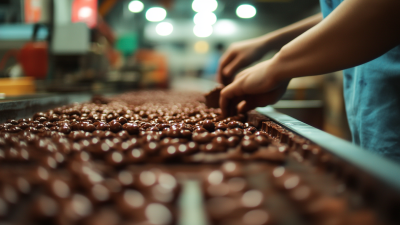
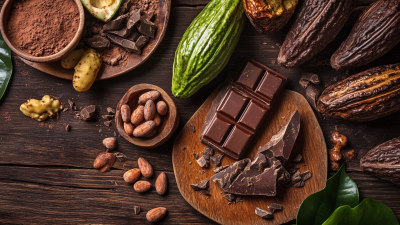
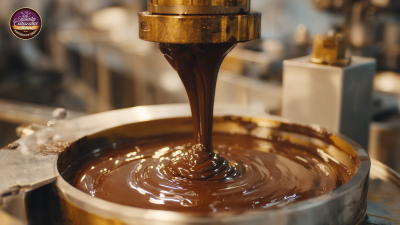
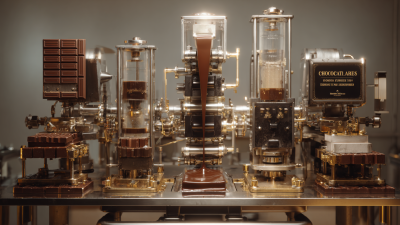

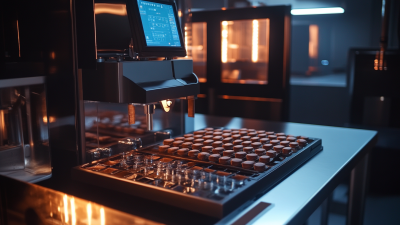
Utilizziamo i cookie per migliorare l'esperienza utente. Per maggiori informazioni, consulta la nostra Cookie Policy.